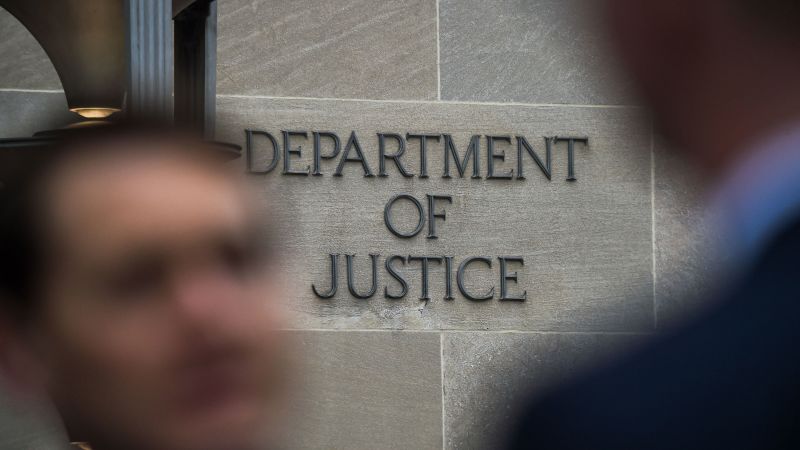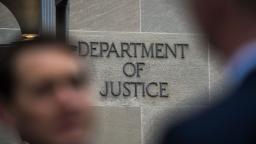

CNN
—
The FBI has arrested two alleged Chinese agents and federal prosecutors have charged dozens of others with working to silence and harass dissidents within the United States – with some even operating an “undeclared police station” in New York City.
Lu Jianwang and Chen Jinping allegedly operated the police station in New York City’s Chinatown. Both men are US citizens and have been charged with conspiring to act as agents of the Chinese government and obstructing justice. The police station has been shut down since a search warrant was executed at the location last fall, according to John Marzulli, a spokesman for the US Attorney in the Eastern District of New York.
The two men appeared in court Monday, with Lu being released on a $250,000 bond and Chen on a $400,000 bond. They are not permitted to travel within half a mile of the Chinese consulate nor mission or communicate with co-conspirators. Neither has entered a plea.
Lu retained counsel but was represented in the proceeding by a public defender, and a public defender was appointed to represent Chen. Both of the public defenders at the hearing declined to comment.
China hit out at the arrests with Beijing’s Foreign Ministry dismissing the FBI’s claims about the alleged police station and calling it an act of “political manipulation” by US authorities.
“China firmly opposes the US side’s slander and smear campaign,” ministry spokesman Wang Wenbin told a regular news conference.
“The relevant claims have no factual basis. In fact, there is no such thing as the so-called overseas police stations you mentioned,” Wang added.
The US Justice Department also announced charges against 34 officers of the national police of the People’s Republic of China with harassing Chinese nationals in the US critical of the Chinese government.
All 34 are believed to live in China and remain at large, according to Justice Department. The officers were part of an effort by the Chinese government called the “912 Special Project Working Group” to influence global perceptions of the People’s Republic of China, or PRC.
The agents allegedly used social media to post favorably about the PRC and to attack their “perceived adversaries,” including the United States and Chinese pro-democracy activists around the world, the Justice Department said. The illegal police operation is the “first known overseas police station in the United States” set up on behalf of the Chinese Ministry of Public Security, or MPS, the Justice Department said.
The agents were allegedly directed by the MPS to create and maintain accounts that looked like they were run by American citizens. Topics of their propaganda machine include US foreign policy, human rights issues in Hong Kong, the Russian invasion of Ukraine, Covid-19 and racial justice protests following the murder of George Floyd, according to prosecutors.
Agents also posted videos and articles targeting Chinese pro-democracy advocates in the US, the Justice Department alleged, some of which included explicit death threats. In addition, the agents allegedly used threats to intimidate people into skipping pro-democracy protests within the United States.
“The PRC, through its repressive security apparatus, established a secret physical presence in New York City to monitor and intimidate dissidents and those critical of its government,” Assistant Attorney General Matthew Olsen said in a statement. “The PRC’s actions go far beyond the bounds of acceptable nation-state conduct. We will resolutely defend the freedoms of all those living in our country from the threat of authoritarian repression.”
In another case, federal prosecutors allege that an executive at a videoconferencing company conspired with others to disrupt a meeting on the platform commemorating the Tiananmen Square Massacre at the direction of the Chinese government.
Though the videoconferencing company was not named in court documents, CNN has previously reported the company is Zoom.
The executive, Xinjiang “Julien” Jin, was previously charged by the Justice Department for the alleged plot. The new complaint adds charges against nine additional individuals, including six Ministry of Public Security officers and two officials with the Cyberspace Administration of China.
According to the Justice Department, the executive, who is based in China, and his codefendants repeatedly sought in 2018 to interfere with video calls organized by a Chinese dissident living in New York City after a request from the Chinese government to do so. Jin also tried to identify any other account associated with that dissident and place them in a server with lagging response times, prosecutors say.
In 2019, Jin and his codefendants allegedly worked with the Chinese government to block accounts seeking to commemorate the Tiananmen Square Massacre.
According to court documents, the secret police station was set up in early 2022 to identify, track and intimidate Chinese dissidents within the United States.
Prosecutors say one such victim was an unnamed person living in California who was a “PRC dissident and PRC pro-democracy advocate” who “reported to the FBI that he/she served as an adviser to a 2022 congressional candidate from New York State” who also was the target of a PRC pressure campaign.
That victim told the FBI that they have received threatening phone calls and social media messages from people they believe are associated with the Chinese government, and that person’s car was broken into immediately after that person gave a pro-democracy speech.
During an interview with the FBI, Lu said that he had established the office, which he called an “oversees service center,” to help Chinese nationals living in the United States “renew Chinese government documents.” Lu told investigators during the interview that Chen acted as the primary point of contact with officials back in China.
During a separate interview, Chen initially denied having any direct contact with the Chinese government, according to court documents, though he later recanted.
Investigators say that during that interview, Chen took a seven-minute bathroom break, during which an agent repeatedly warned him through the bathroom door not to delete anything on his phone. When agents later searched the phone, they found that chat logs with MPS officials had been cleared.
Both Lu and Chen later acknowledged deleting messages between themselves and their liaison in the MPS, according to court documents.
This story has been updated with additional details.
